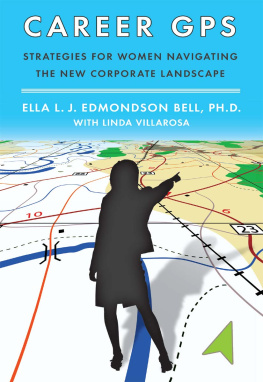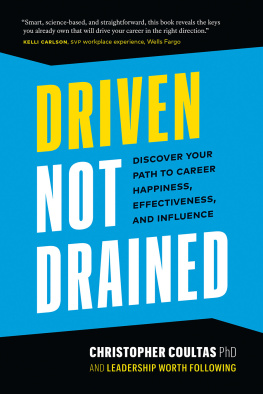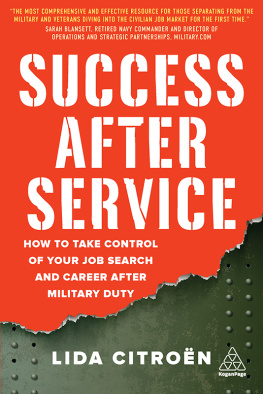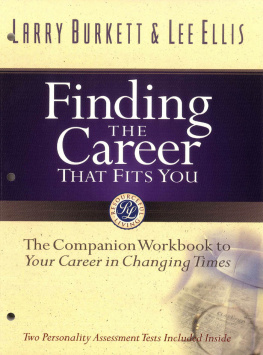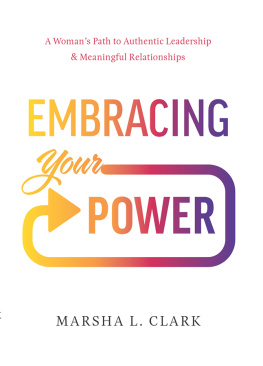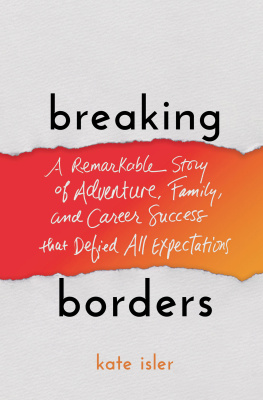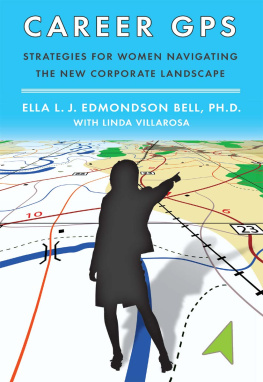F rom my unique perspective as a professor at the Tuck School of Business at Dartmouth, one of the worlds most renowned business schools, I am constantly amazed when I look at the confident, polished women we are sending out into the world of work. This is a new breed of corporate womansecond-and third-generation working women who are more prepared than any other generation in history. They have had access to the finest education money (or scholarships) could buy. They are well traveled and worldly, and they understand the larger global picture. Quick thinkers, they are also technically astute, smooth, and agile. Im constantly surprised at how well they play the game, often thanks to some excellent coaching from their own mothers and fathers, who boast a wide range of business experience. Some parents walked the halls of top-tier companies, while others worked in small businesses or ran mom-and-pop companies of their own. When their daughters enter the corporate marketplace, the young women have the sense of I belong.
This is a far cry from my own humble, shaky beginnings and those of many of my generation, who came of age in the sixties and seventies. We had little knowledge of the landscape. In fact, for me, it was so unfamiliar that it was best to look at it as foreign terrain.
Nothing in my history prepared me to enter the Ivy League elite world of education or to step into the offices of Fortune 500 companies. I was adopted into a working-class family in the South Bronx. My father had only an eighth-grade education; my mother completed only seventh grade. The business world was closed off to women in my generation. As a group, we were destined to be teachers, nurses, social workers, secretaries, and telephone operators.
In high school, one of my teachersthank God!looked at my record and saw that in everything but math, I got good grades. He told me, You can go to college. That was a shocker.
I went to Mills College of Education and by my senior year was the student body president. One of the few people in my neighborhood who went to a private college, I felt extremely blessed. I was married at the very young age of twenty-one, but one of the main reasons my marriage didnt work was that I wanted to pursue a Ph.D. and my husband objected. When, newly divorced, I finally did go after the degree, my best friends mother warned me that I was going to overeducate myself and never get married again.
In 1986 I was short-listed for a job at Yales business school, and I was terrified. It was a chance to move into the sacred land of elite higher education, and I wondered if I really belonged. Would I get the job? If I did, would I screw up? The same year, around the same time, Whoopi Goldberg was up for an Academy Award for The Color Purple . Although I wanted her to win, I remember thinking that if she won the Oscar, I wouldnt get the job at Yale. My mind-set was based on scarcity: I thought in terms of limited options and opportunity. I couldnt believe the universe would bless two black women; the pie of opportunity and options didnt feel big enough. When Whoopi lost, I was sad, but I thought, Yes! Heres my chance.
I did get the offer to teach at Yale, and right away I called my mother. Her response was very tepid, like Uh, oh, okay. I was disappointed that that was it. Later that evening, she called me back and told me that she had gone to the library on Fordham Road in the Bronx, because she didnt know anything about Yale and needed to understand what it was all about. The librarian had told her that Yale was an Ivy League school for rich white people, and my mother was worried that it wasnt a good place for me. Who is going to take care of you? she asked, clearly fearful. There were no congratulations on my accomplishment.
These days, my female students have mothers, fathers, and even grandparents who graduated from schools such as Yale. They are extraordinarily prepared; they have been preparing since kindergarten. Though these women are blessed with gifts, privileges, and opportunities I never dreamed of, they are still not ready. Despite their polish and drive, their skills, education, and confidence, there is still plenty to trip up these women in this complicated, fast-changing corporate landscape. Thats why I decided to write this book.
Its because they are so prepared that they think all of the barriers have been removed and all they have to do to succeed is be competent and skilledthat discrimination is over. They think the world has changed completely and that women are treated just like men, people of color just like whites. Even in the era of Barack Obama, this isnt entirely true, of course. There are still biases, both in terms of attitudes toward women and people of color and in terms of discrimination found in organizations practices and policies.
Even setting aside the residual discrimination that still exists, my students have a ways to go. Though they have the smarts, the game has changed, and they generally lack the practical, social, and emotional skills necessary in present-day companies to ascend to the highest levels.
I was recently consulting at a large, well-established family corporation and had an intense counseling session with a very bright, well-educated, and skilled young woman. She was in the early stages of her management career and had been with the company for about a year and a half. She complained of being supremely frustrated and stalled. I work so hard, but Im not getting promoted, she told me in tears. I have a mentor, I attend seminars, and I think Im doing everything right. But nothings happening. Im thinking Ill just quit.
After listening to her for a while, I asked about her social interactions. Have you had coffee with any of the senior people in your area? I asked.
No, why should I do that? she responded. Thats a waste of my time.
This womans attitude is similar to that of many, many other young women. Without realizing it, she was very focused on her career in the narrowest sense. She put her nose to the grindstone and never looked up. She was stuck in old-school corporate thinking.
In the new corporationwhich is international, relies on technology, and has a smaller middle-management levelyou have to do so much more than work hard. (But you do have to work very hard!) You must also show that you are socially competent, using all of your emotional intelligence. This means developing people and relationships. The young woman I was working with didnt understand that. Like many others, she didnt want to do the work to build the relationships that are necessary to move forward. She thought it was enough to do her job and go home. But people need to know who you are and what you bring to the table. To do that, you have to interact with people on a social level. In fact, a high-level corporate friend once told me that early in your career youre paid for what you do. Later youre paid for whom you know.
Starting out, skills and performance are always 100 percent of what is required. If youre a woman or a person of color, its probably 110 percent. You need that just to get a foot in the door. But at higher levels, those who succeed have a more subtle set of qualities. They are team players, theyre top-notch communicators, and theyve created an internal buzz about themselves. They care about developing other people as well as themselves because thats what leaders do. They have learned to integrate their work lives and personal lives. Without complaint (in public, at least) they are on call 24/7. These women and men have done their homework and know the company inside out; they understand where it fits in the larger industry, where its been, and where its going. They are flexible: they can move not only up but also laterally. And they are leaders, able to motivate, communicate, inspire, and make tough choices. These are the skills that separate those who thrive from those who merely survive.

